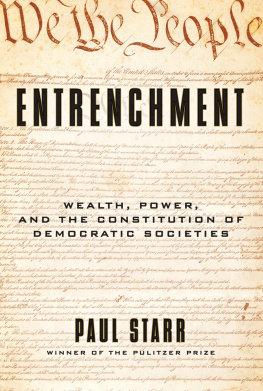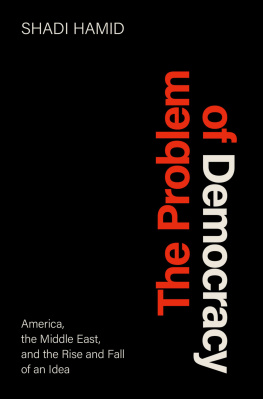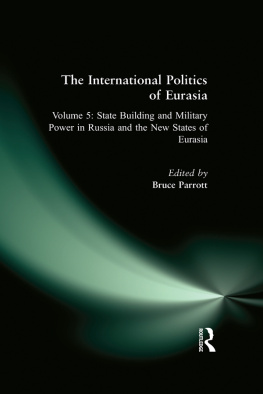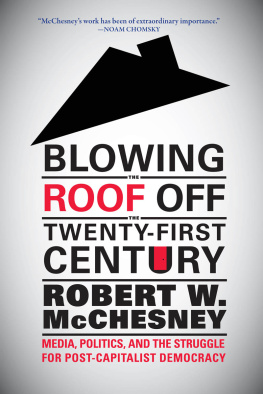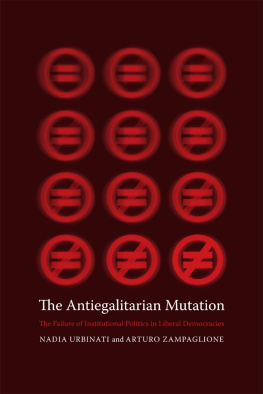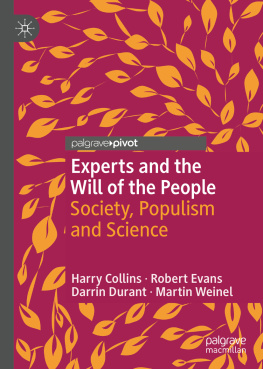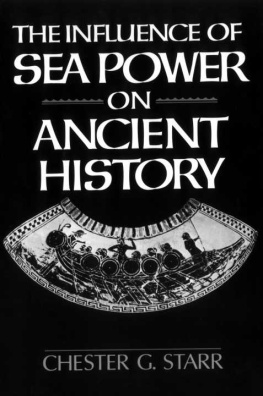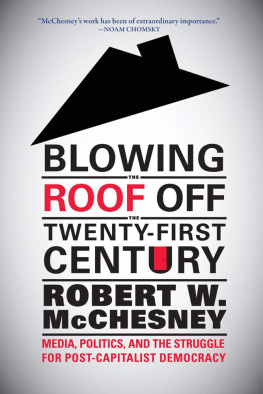ENTRENCHMENT

Copyright 2019 by Paul Starr.
All rights reserved.
This book may not be reproduced, in whole or in part, including illustrations, in any form (beyond that copying permitted by Sections 107 and 108 of the U.S. Copyright Law and except by reviewers for the public press), without written permission from the publishers.
Yale University Press books may be purchased in quantity for educational, business, or promotional use. For information, please e-mail (U.K. office).
Set in Janson type by IDS Infotech Ltd.
Printed in the United States of America.
Library of Congress Control Number: 2018965635
ISBN 978-0-300-23847-1 (hardcover : alk. paper)
A catalogue record for this book is available from the British Library.
This paper meets the requirements of ANSI/NISO Z39.48-1992 (Permanence of Paper).
10 9 8 7 6 5 4 3 2 1
To my colleagues and friends M.D., P.D., and V.Z.,
and to the next generation
Contents
Preface and Acknowledgments
R EADERS WHO GLANCE AT a book about entrenchment may expect it only to be about the perpetuation of unjust power. One acquaintance, on first hearing this books title, said what a discouraging subject this must be. But in the following pages I use entrenchment in a general sense, applying to foundational rules of all kinds, and am concerned not only with unjust regimes but also with the entrenchment of rights and democracy and institutions promoting equality. Anyone hoping to defend those values when they are threatened, as they are now, should be interested in the means of entrenching them. Instead of being discouraging, the subject of entrenchment ought to awaken us to what is at stake when foundational rules and systems of power, just or unjust, hang in the balance.
I began working on this project and giving talks about it in 2013, so I did not cook up the ideas especially for todays political situation, though the political turns of our time have influenced how the book developed. I originally began writing about entrenchment in regard to race and other social categories for a 1992 volume, How Classification Works, edited by the anthropologist Mary Douglas and philosopher David Hull. It was only after using the concept in several different contexts that I decided to give it more systematic attention. I am much indebted to Stanfords Center for Advanced Study in the Behavioral Sciences and to Princeton University for affording me the 201415 academic year to begin that work.
, and Julu Katticaran, who did excellent research on the legacies of slavery and colonialism for a chapter that I decided in the end not to pursue.
Lucky is the writer who can count on a partner for love and support through the years of working on a book. I am among the lucky ones, and I thank my wife, Ann, for that.
Introduction
The Stakes of Entrenchment
T RYING TO CEMENT CHANGE to entrench itcan be a dangerous game. The deeper and more lasting the change we seek, the higher we raise the stakes and the more fraught we make the contest. There is nothing so much to be feared in politics as the other side permanently getting its way, and no temptation greater than the opportunity to get ones own way decisively and for good.
Yet it is impossible to keep everything open to choice, so even without anyones intending it, many things become relatively fixed. As social and political institutions develop, their constitutive featuresthe basic elements that make them what they areoften become increasingly difficult or seemingly impossible to change. The process may be sudden or slow, the result of deliberate decisions or an unintended byproduct of actions taken for other reasons. As people come to regard the fundamentals as settled and perhaps as natural facts of life, they are likely to give low odds to changing them, if they think about those opportunities at all.
We can describe the same process in a more positive way, however, from the standpoint of innovation. Unlike passing fads, the most significant innovations in both institutions and technologies are generally long-lasting. Innovators have an interest not only in having their ideas adopted but also in making them stick. They may want to ensure that once their innovations go into effect, those who opposed the ideas beforehand do not have the opportunity to undo them. They are interested, in short, in entrenchmentdurable innovation, they might call it.
Entrenchment per se is not a bad thing. We could hardly organize our lives, make plans, or have any confidence about the future if not for some more or less fixed aspects of law and society. This confidence is partly what political constitutions are intended to provide, and constitutional entrenchmentadopting a legal rule in a form that makes it hard to changeis one of the principal forms entrenchment takes. As the example of political constitutions indicates, entrenchment may be a means of protecting values of high importance, such as freedom, rule of law, and democracy. Constancy in fundamentals may be the condition for innovation in other dimensions.
As the constitutional example also indicates, entrenchment may be a carefully thought-out choice, the result of a publicly deliberated decision to make an arrangement difficult to undo. In such cases, entrenchment is often traceable to specific historical moments and known historical figures whose reasoning we may be able to reconstruct. In the many contrasting cases where entrenchment emerges without any conscious plan, it often results from the unanticipated effects of chains of decisions, or from the choices of countless anonymous people accumulating slowly over long periods.
We usually notice entrenched institutions, interests, and beliefs only when they obstruct change. But we also need to see entrenchment from its beginnings, not only as a condition but as a processas a type of change structured, intentionally or not, so as to be difficult to reverse. Entrenchment is not the opposite of change. It is the making of changes that then become hard to undo and that increase the resistance to stress at the foundations of society.
These considerations make the phenomenon of entrenchment more complicated than it may seem. A societys entrenched featuresthe foundational features that are hardest to changeshape what kind of society it is. They establish its moral and political character and influence its economic performance. They have often arisen through great struggles and may again become the subject of high-stakes conflict. Whether we want to preserve or reform those entrenched realities, or to entrench new ones, we need to understand entrenchment itself. That is the general motivation of this book. But there is a more particular one as well: to understand the foundations of power in the troubled democracies of our time.
Much of our politics today is a struggle over entrenchmentover efforts to bring about change in a form that the other side will find hard to undo. The three decades after World War II were a period of liberal democratic entrenchment in the West: all the relevant parties accepted the terms of democratic institutions. The arrangements adopted as part of that settlement initially kept the power of concentrated wealth in check and created the basis for a widely shared prosperity. That order, while not entirely undone, has been shaken. The last quarter of the twentieth century saw a surge in economic inequality, and after an era when democratic forms of government were expanding worldwide, liberal democracy itself has come under attack. Even the nations with the longest and deepest democratic traditions are haunted by the twin specters of oligarchy and populist nationalism. The conflicts today are testing just how well-entrenchedor how fragilethe institutions are that underlie constitutionalism, democracy, and the economics of shared prosperity.
Next page
